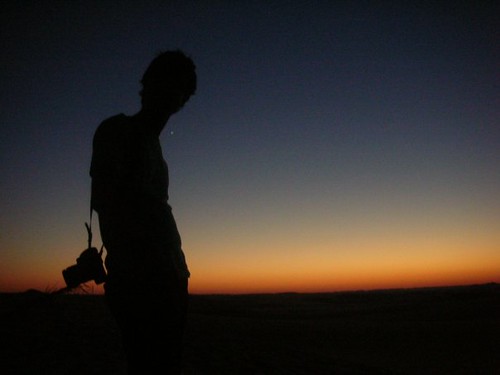
Sontag talks about viewing suffering in two very different ways;
First - and more importantly - as a way to remember and honor war's dead, to (maybe) avoid future wars, or at least to understand their horrifying implications.
Second as a narcissistic and base desire to witness the morbid.
Since leaving Egypt i have thought a lot about this second part. About our natural 'attraction' to viewing suffering and the grotesque. Sontag locates the first recorded acknowledgment of this attraction in Plato's Republic, where in Book IV Socrates relates a story about Leonitus, son of Aglaion:
On his way up from the Piraeus outside the north wall, he noticed the bodies of some criminals lying on the ground, with the executioner standing by them. He wanted to go and look at them, but at the same time he was disgusted and tried to turn away. He struggled for some time and covered his eyes, but at last the desire was too much for him. Opening his eyes wide, he ran up to the bodies and cried, "There you are, curse you, feast yourselves on this lovely sight."Last night in a taxi on the way back from Pusan, we saw flashing lights up ahead on the highway. Scott said it was going to be a checkpoint, but i was pretty sure i knew what was coming.
In America we're so fast to hide the bodies. Part of the implicit pact of rubbernecking back home is an all-but-guaranteed PG-13 rating. We crane to look, but we anticipate only the signs and symbols of carnage - shattered glass and crumpled metal. I've noticed that this is rarely the case outside of the West.
Last night no one had bothered to cover up the body. It just lay there, face up, on the side of the road. I saw him first, and pointed out that "that guy's dead," whereas Scott and Cyndi decided that he definitely was not. The cab driver, for his part, said "oh my god" dramatically/breathlessly a few times, clearly for our benefit. ("Oh my god" is a genuine Korean expression, used in all corresponding situations to the English version.)
Afterwards, i couldn't stop thinking about the gulf between our different reactions.
Cyndi asked, "how can you be so cavalier?" But I wonder how i couldn't be.
I saw so many car crashes in Egypt that the cringe-component of the shock faded. All that was left was the visual, and the visual remains fascinating.
Sontag points out that "suffering from natural causes, such as illness or childbirth, is scantily represented in the history of art; that caused by accident, virtually not at all - as if there were no such thing as suffering by inadvertence or misadventure." (p. 40) This is probably because suffering removed from pathos becomes narratively meaningless. (unless of course it serves an anti-narrative of universal pointlessness.) And because most of Sontag's book is devoted precisely to the 'meaning' associated with viewing suffering, she doesn't dwell any further on the accidental misery of others.
But if Sontag is correct in arguing (and i think she is) that viewing the misery inherent in war photography cannot be separated from the narrative of the war in question, then photographs - or first person viewings - of narrative-less accidental death is indeed a very different bag. It is all the depravity with none of the 'benefits.' Except that even here Sontag sees potential for personal growth:
As objects of contemplation, images of the atrocious can answer to several different needs. To steel oneself against weakness. To make oneself numb. To acknowledge the existence of the incorrigible. (p 98)
And if this truly is a goal (i'm skeptical), then I would think that accident photography offers the best way to approach this, free from the distractions of the narratively contextualized. And the lack of any mainstream interest in narrative-less accident-photography (whether documentary or artistic) becomes a strange omission.
Or maybe we really just need this contextualizing as a shield. Both from appearing morbid and grotesque ourselves, and from feeling that the world itself is morbid and grotesque without consequence.
Or maybe i've written a stupidly long post.



1 comment:
ment
Post a Comment